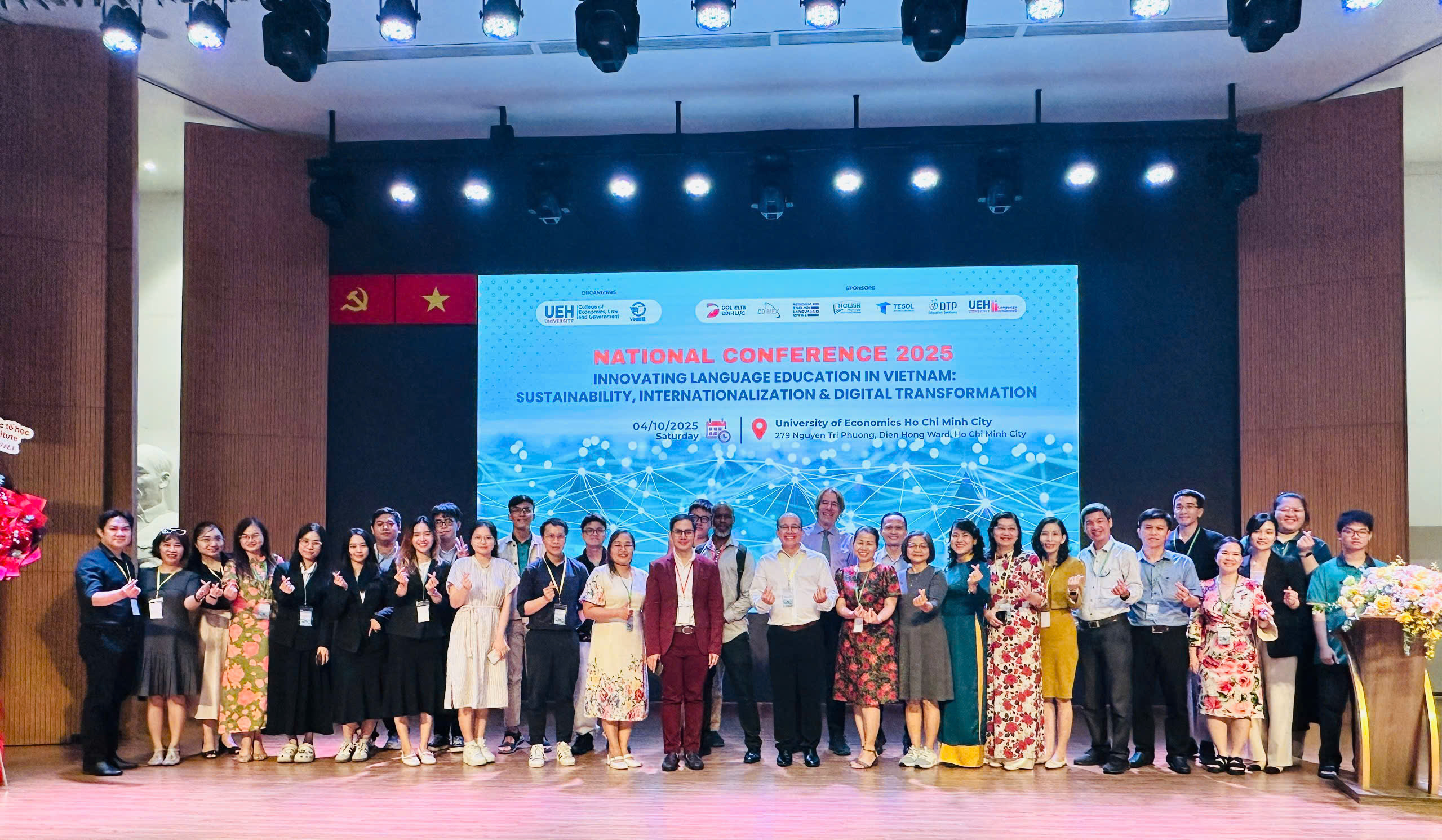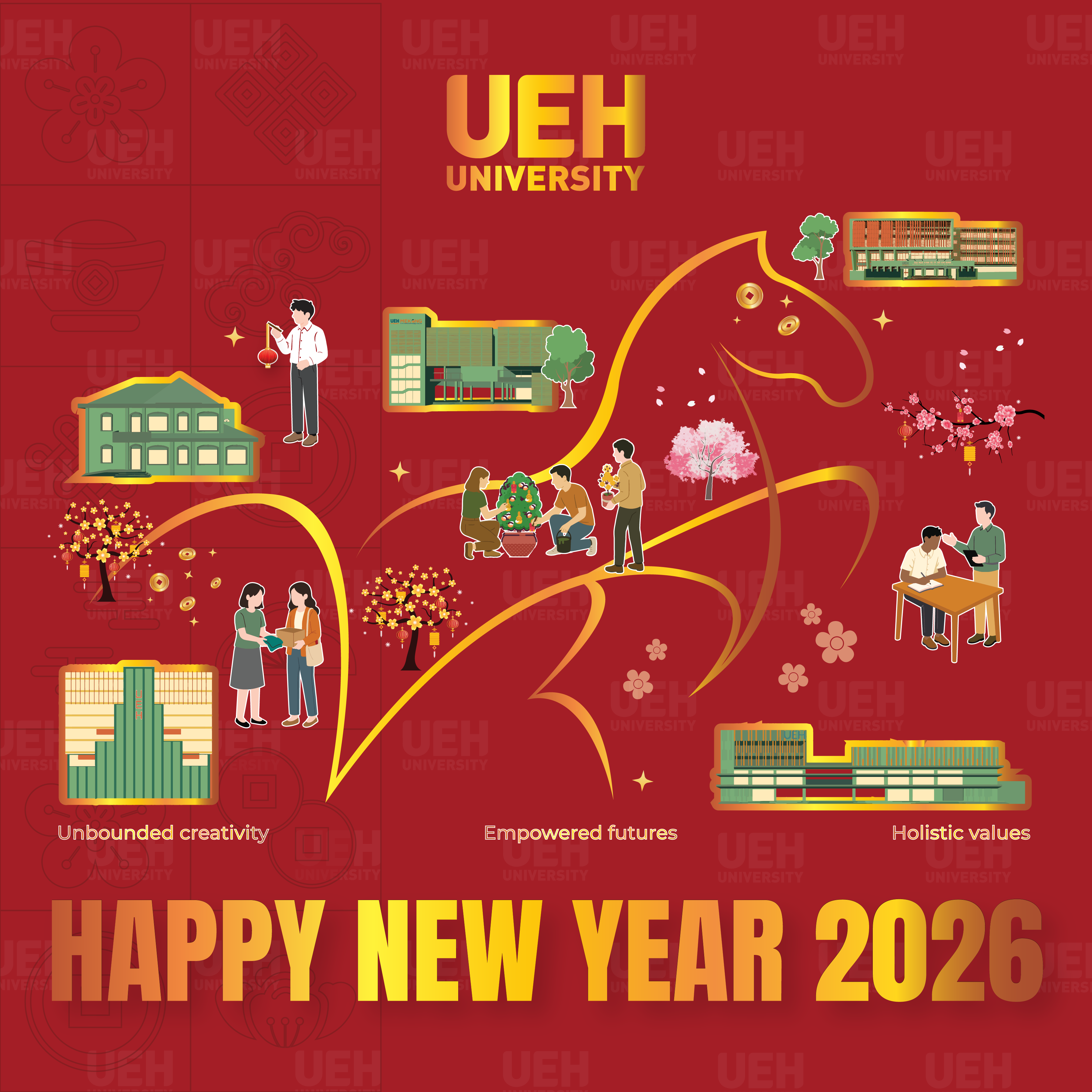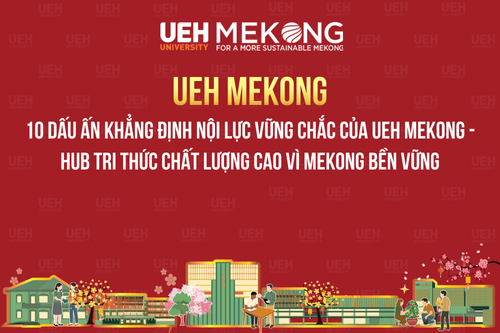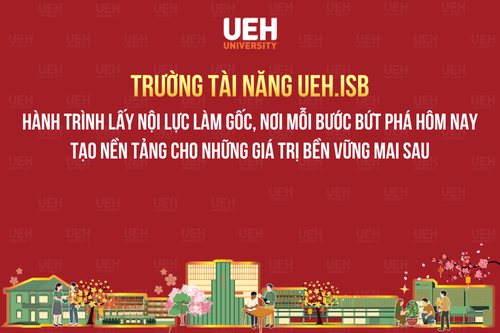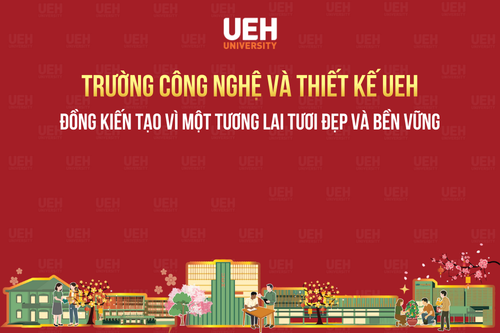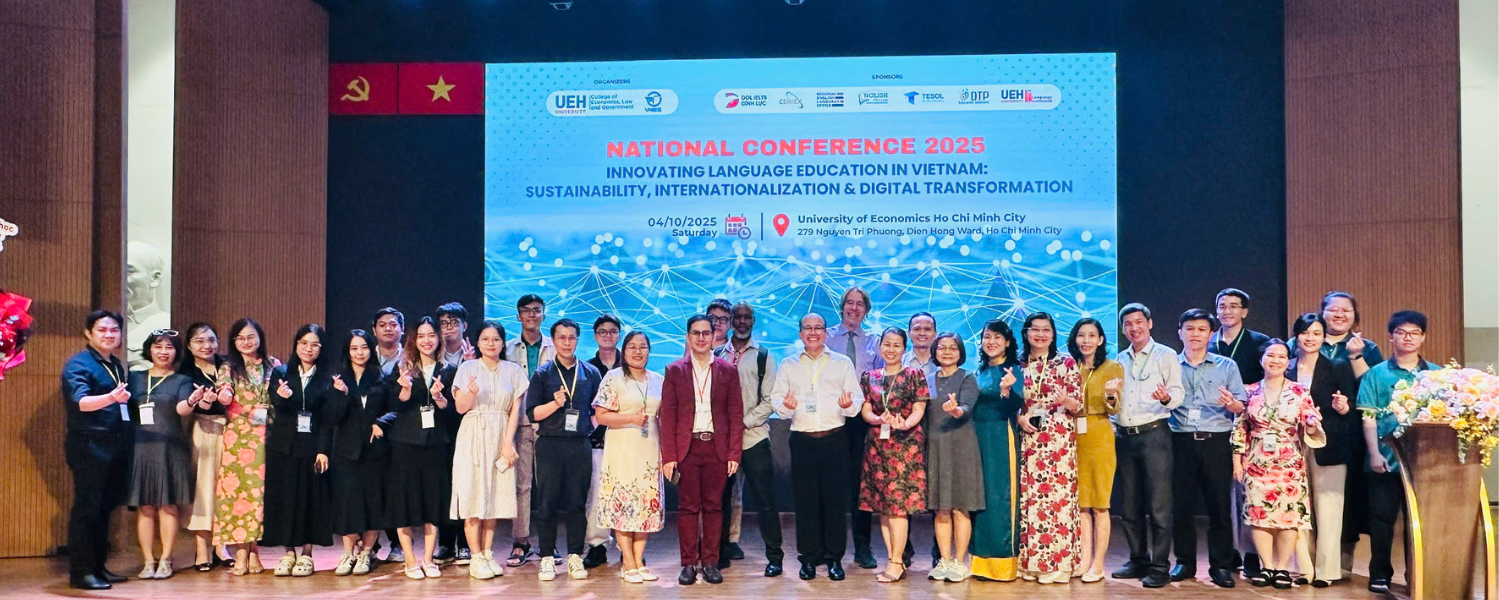
National Conference 2025 – Innovating Language Education in Vietnam: Sustainability, Internationalization & Digital Transformation
06 Oct, 2025
On October 4, 2025, at the University of Economics Ho Chi Minh City (UEH), the National Conference 2025 with the theme “Innovating Language Education in Vietnam: Sustainability, Internationalization & Digital Transformation” was successfully held. The event was co-organized by the College of Economics, Law and Government (UEH) and the Vietnam Institute of Educational Sciences.
The conference brought together nearly 150 delegates from universities, research institutes, educational organizations, and enterprises both inside and outside Vietnam. The program included two keynote sessions, two featured sessions, and more than 50 parallel presentations. The presentations focused on key issues in the field of language education today, such as teaching and assessment in the digital age, the internationalization of curricula, language education policy and leadership, as well as sustainable development in training linked with enterprises. In particular, keynote speakers shared their perspectives and engaged in discussions on the future direction of language education as Vietnam is promoting policies to make English the second language.
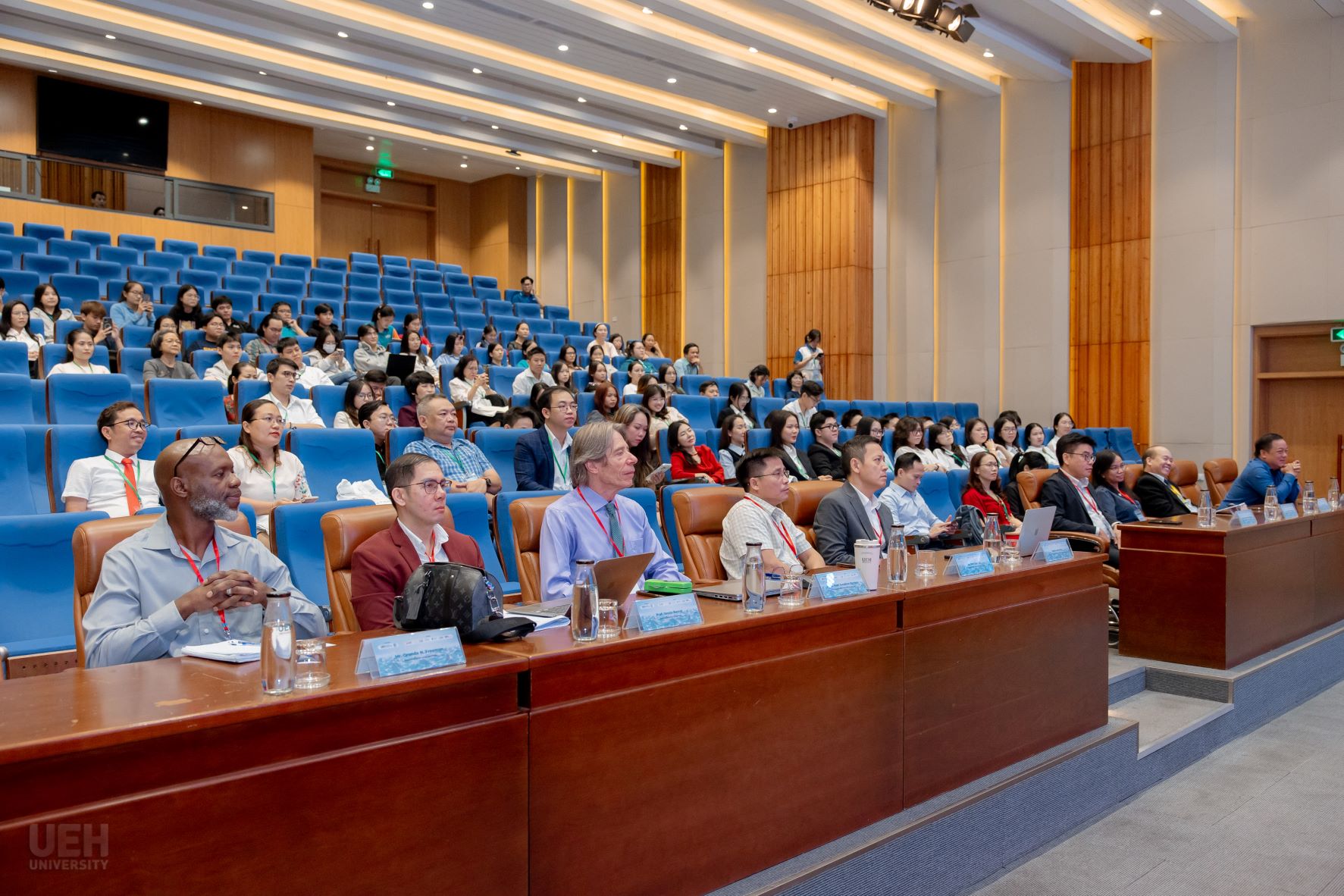
Delegates and speakers at the National Conference 2025, University of Economics Ho Chi Minh City
In his opening speech, Assoc. Prof. Dr. Pham Khanh Nam – Rector of the College of Economics, Law and Government, UEH – highlighted the importance of the conference theme from the perspective of an economist. He emphasized that language education is a core element in developing human capital – the foundation of growth and development. With vivid metaphors, he stated: “Sustainability means making learning a lifelong engagement, not just for exams; internationalization gives students a ‘passport’ to step into new cultures, careers, and communities; and digital transformation is the engine of acceleration, enabling teachers and learners to connect, create, and share knowledge faster than ever.”
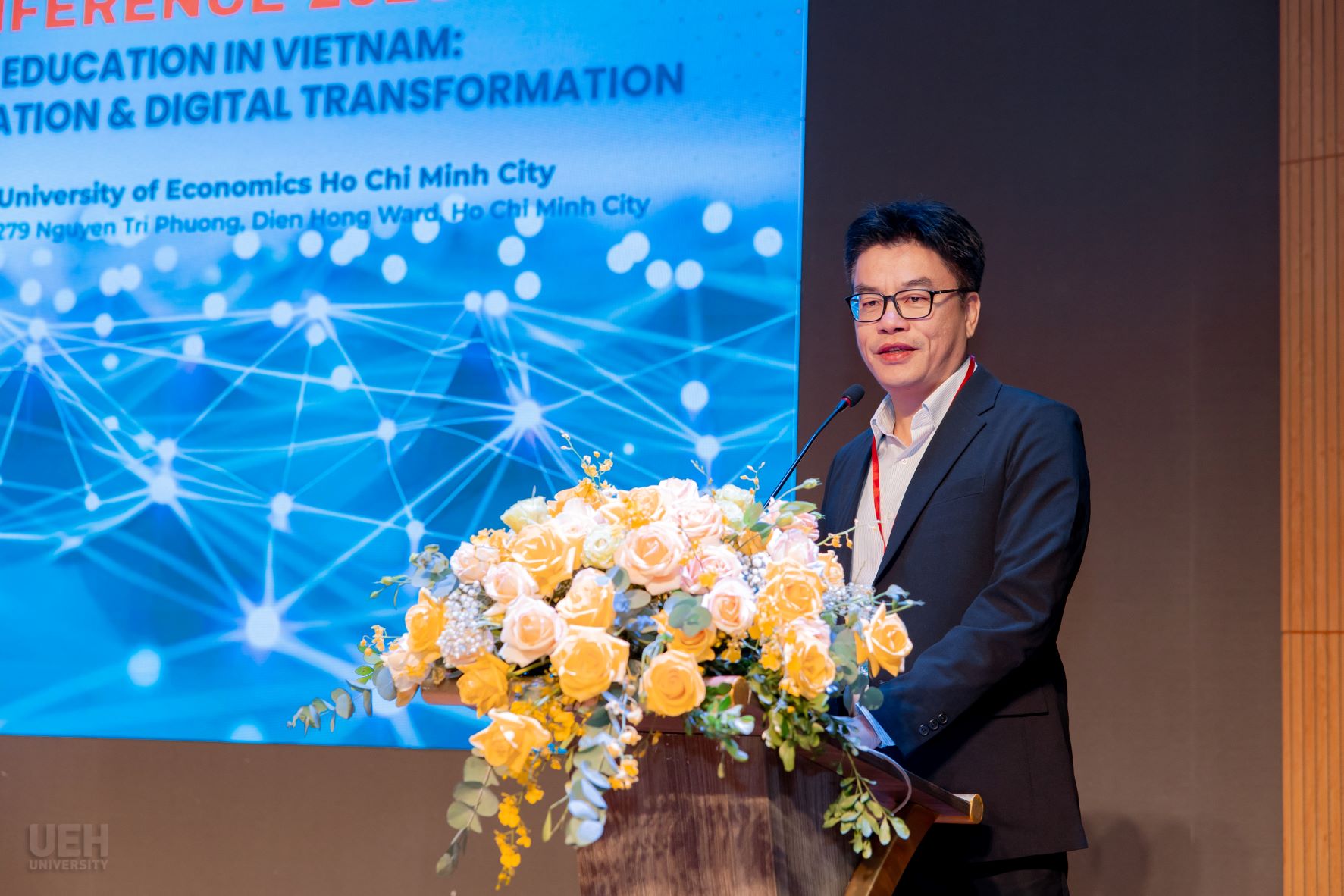
Assoc. Prof. Dr. Pham Khanh Nam delivering the opening speech at the conference.
He also expressed delight at the participation of more than 150 delegates and over 80 submitted abstracts, affirming that this reflects not only academic interest but also a collective determination to help Vietnamese language education adapt to the challenges of sustainability, internationalization, and digital transformation.
In the keynote session, Prof. Dr. Le Anh Vinh – Director of the Vietnam Institute of Educational Sciences – presented on the implementation of integrated curricula in the context of Vietnamese education. His talk analyzed how combining subject knowledge with English-medium teaching could pave the way for English to move closer to the status of a second language in Vietnam. Drawing on current educational reforms and teaching practices, he pointed out both opportunities and challenges in implementation, from teacher preparation, curriculum alignment, to equity in access to education. The presentation also offered insights into enhancing students’ bilingual capacity to meet international integration requirements.
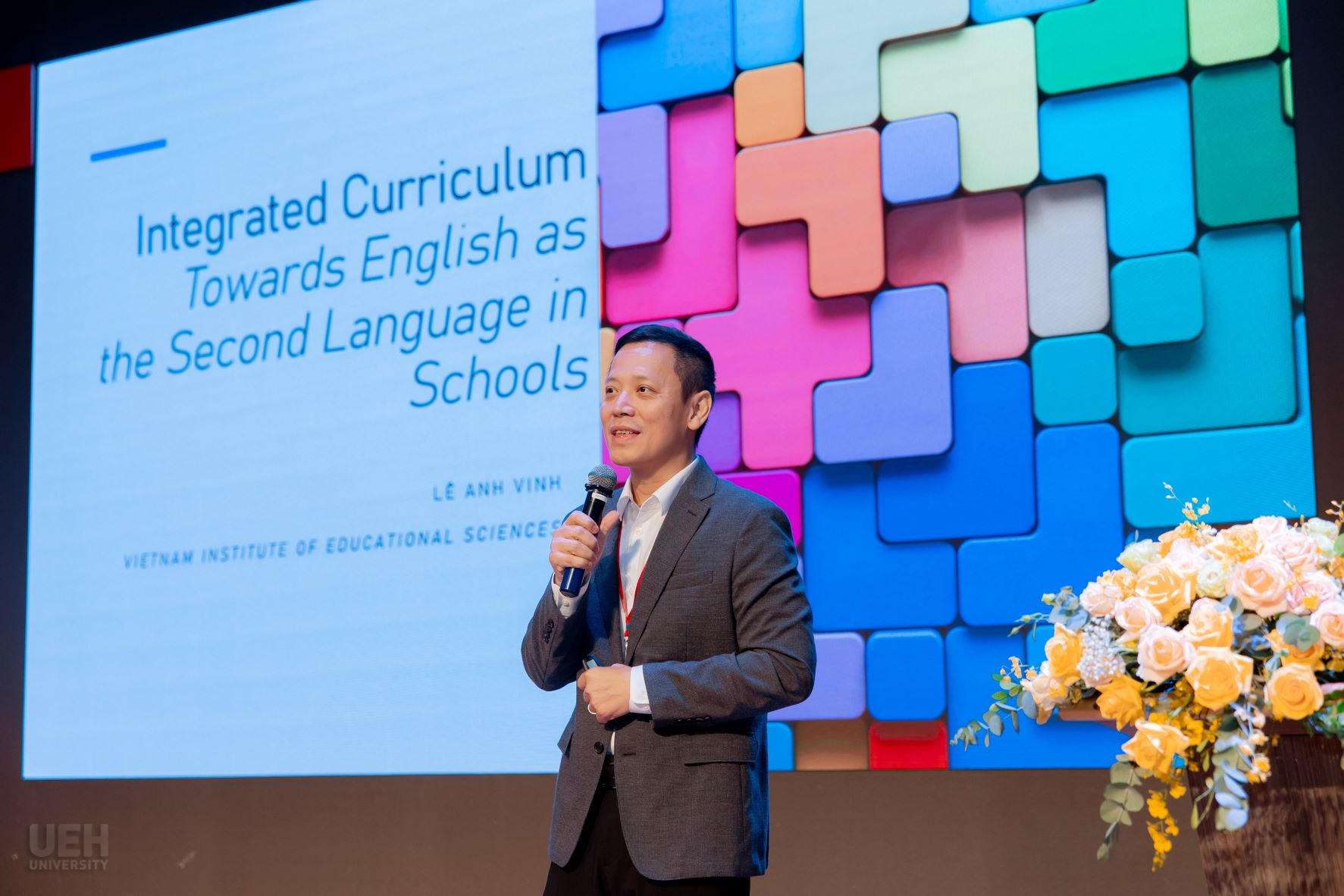
Keynote presentation by Prof. Dr. Le Anh Vinh.
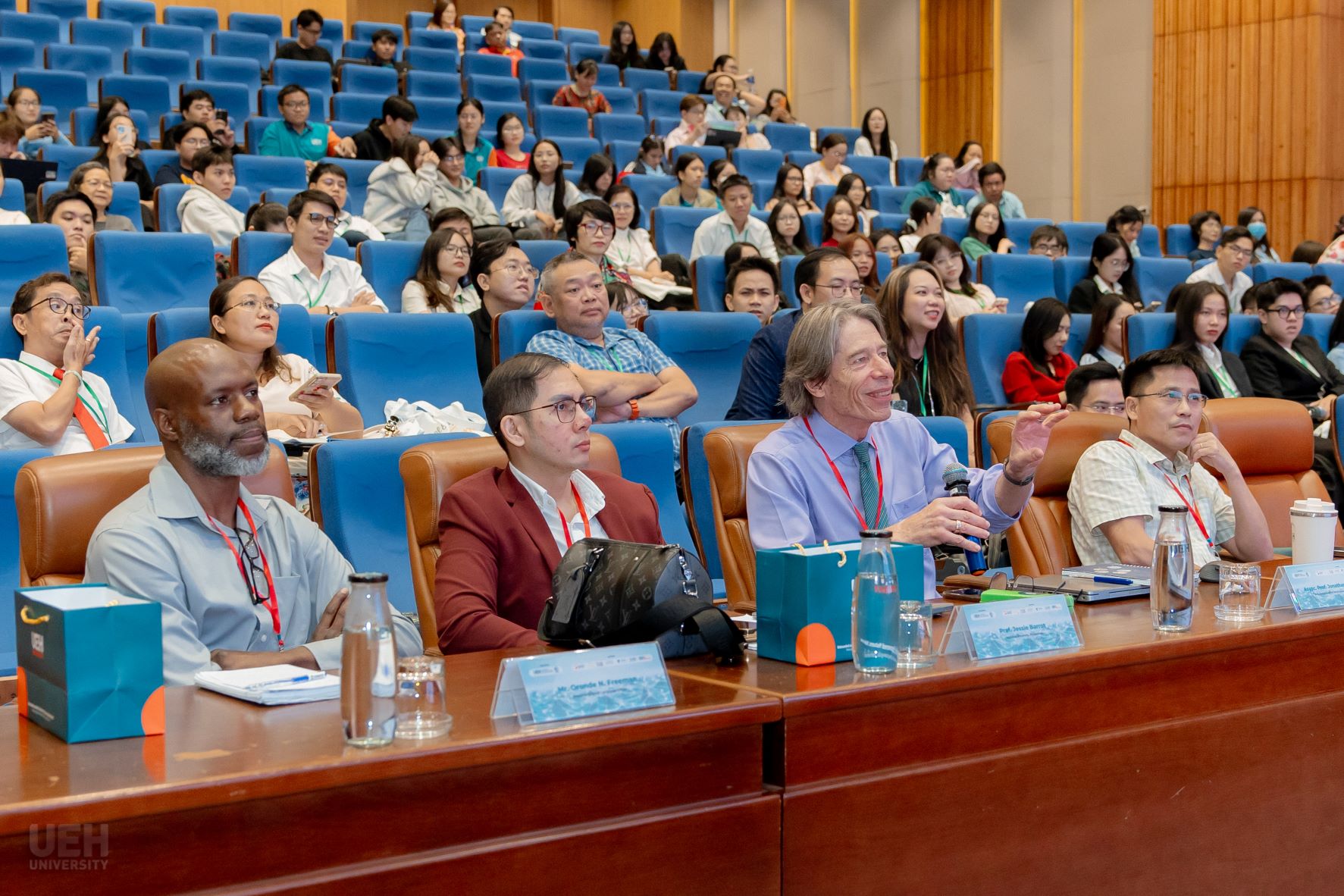
The keynote session topic attracted the attention of many delegates and participants.
Following this, Assoc. Prof. Dr. Jonathan Newton (Victoria University of Wellington, New Zealand) expanded the international perspective with a keynote on Vietnam’s vision of transitioning from English as a Foreign Language (EFL) to English as a Second Language (ESL). He emphasized that this transition carries not only policy implications but also profound pedagogical significance. His presentation affirmed that ESL – along with models such as Content and Language Integrated Learning (CLIL), Content-Based Instruction (CBI), English for Specific Purposes (ESP), and English-Medium Instruction (EMI) – should be grounded in task-based learning, project-based learning, and the principles of the four pillars of education. Notably, he provided a critical reflection on the role of Artificial Intelligence: both as a tool for personalized learning and as a challenge to ensuring educational equity. With over 40 years of research and teacher training experience, Assoc. Prof. Dr. Jonathan Newton offered a perspective rich in theory, international evidence, and teaching practice.
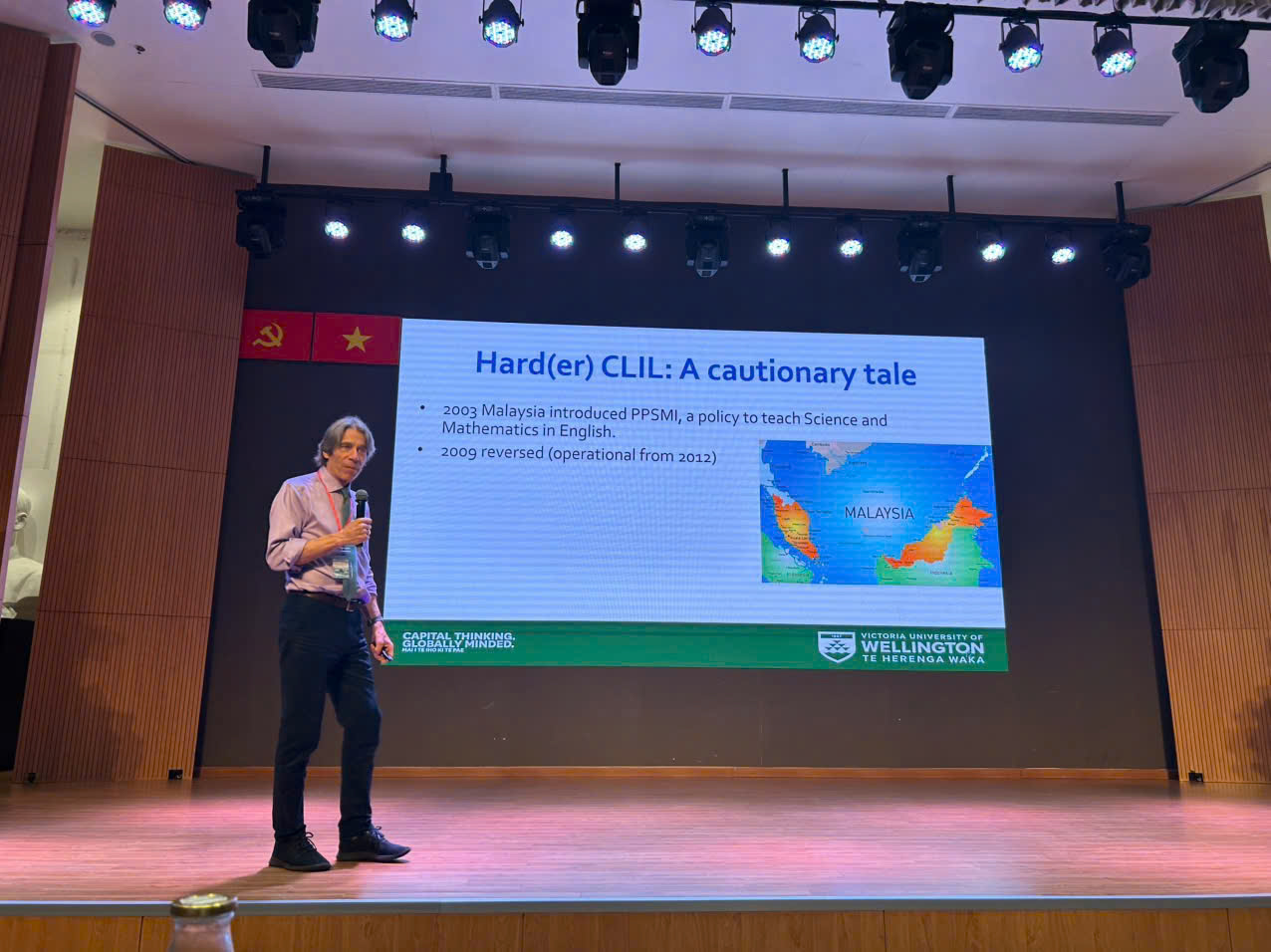
Keynote presentation by Assoc. Prof. Dr. Jonathan Newton
In addition, Prof. Jessie Barrot (National University of the Philippines) focused on “Generative AI for Automated Writing Evaluation” analyzing the potential of this technology in providing quick feedback, scoring, and language editing, while also highlighting its limitations that require teacher supervision. Following this, Mr. Oronde N. Freeman (RELO Fellow, U.S. Embassy) delivered a session on “Tools and Strategies for Easing ESP Planning” introducing solutions for curriculum development aligned with professional needs and the use of corpus-based software to create authentic materials, thereby helping teachers gain confidence in teaching specialized fields.
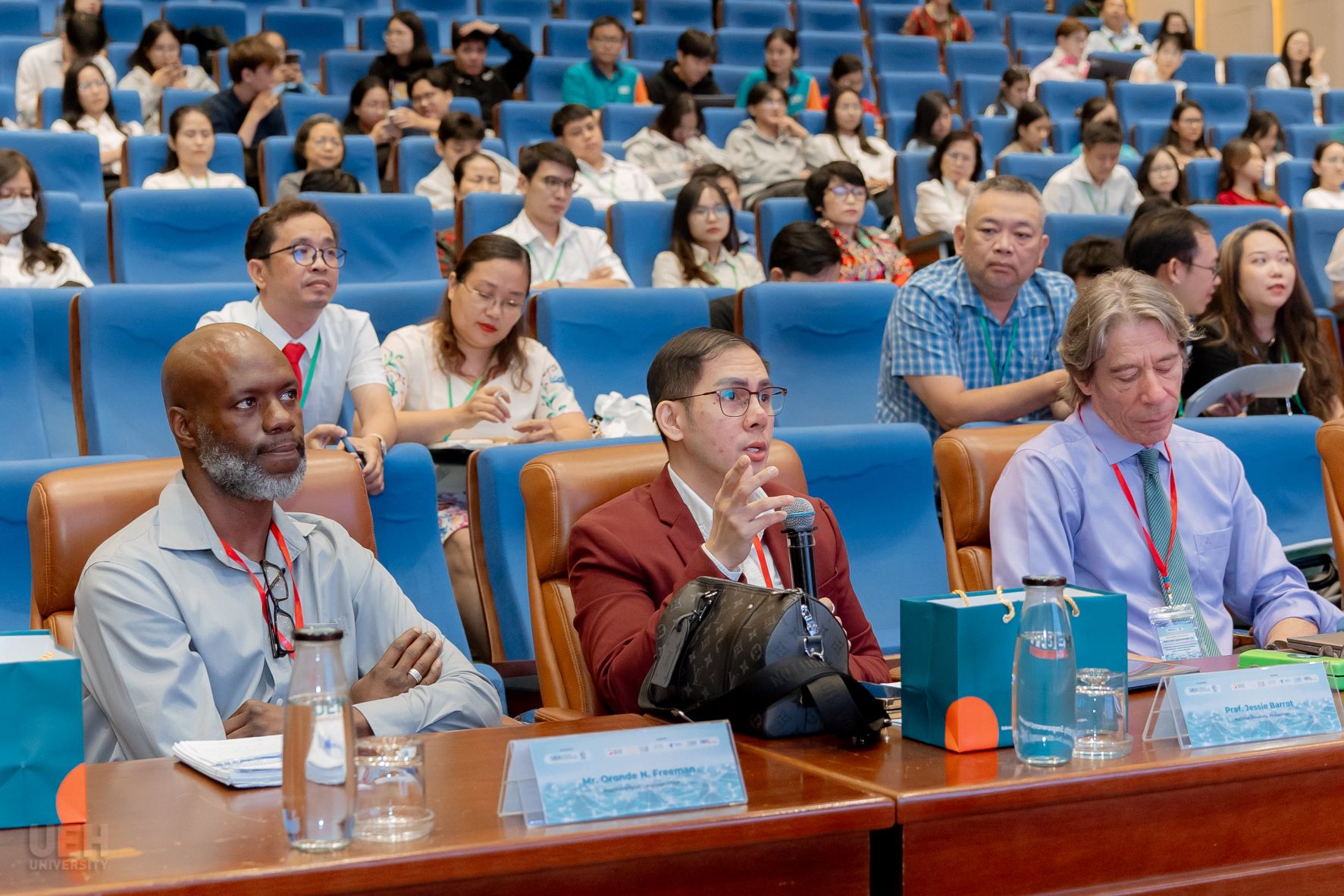
Sessions with Prof. Jessie Barrot and Mr. Oronde Freeman.
Beyond the plenary sessions, the conference featured more than 50 parallel presentations divided into different rooms by major themes. The group on language policy, English-medium instruction, and curriculum innovation focused on EMI in higher education, international standardization, medical English integration, and AI applications in digital dictionary development. The theme of AI and digital transformation in English teaching brought forward fresh perspectives, from automated writing assessment and collaborative writing to AI applications in pronunciation training and learner autonomy. Presentations on teaching and learning methods addressed challenges in listening comprehension, flipped classrooms, gamification, critical thinking instruction, and strategies for vocabulary and reading comprehension. The group on teacher competence, identity, and professional development shed light on the roles of digital competence, professional confidence, digital feedback, and native-speaker teachers as cultural mediators. Finally, presentations on learner autonomy, identity, and socio-cultural communication explored sustainable awareness, bilingual education in families, online learning communities, as well as the influence of AI on speaking skills and the use of academic vocabulary in writing.
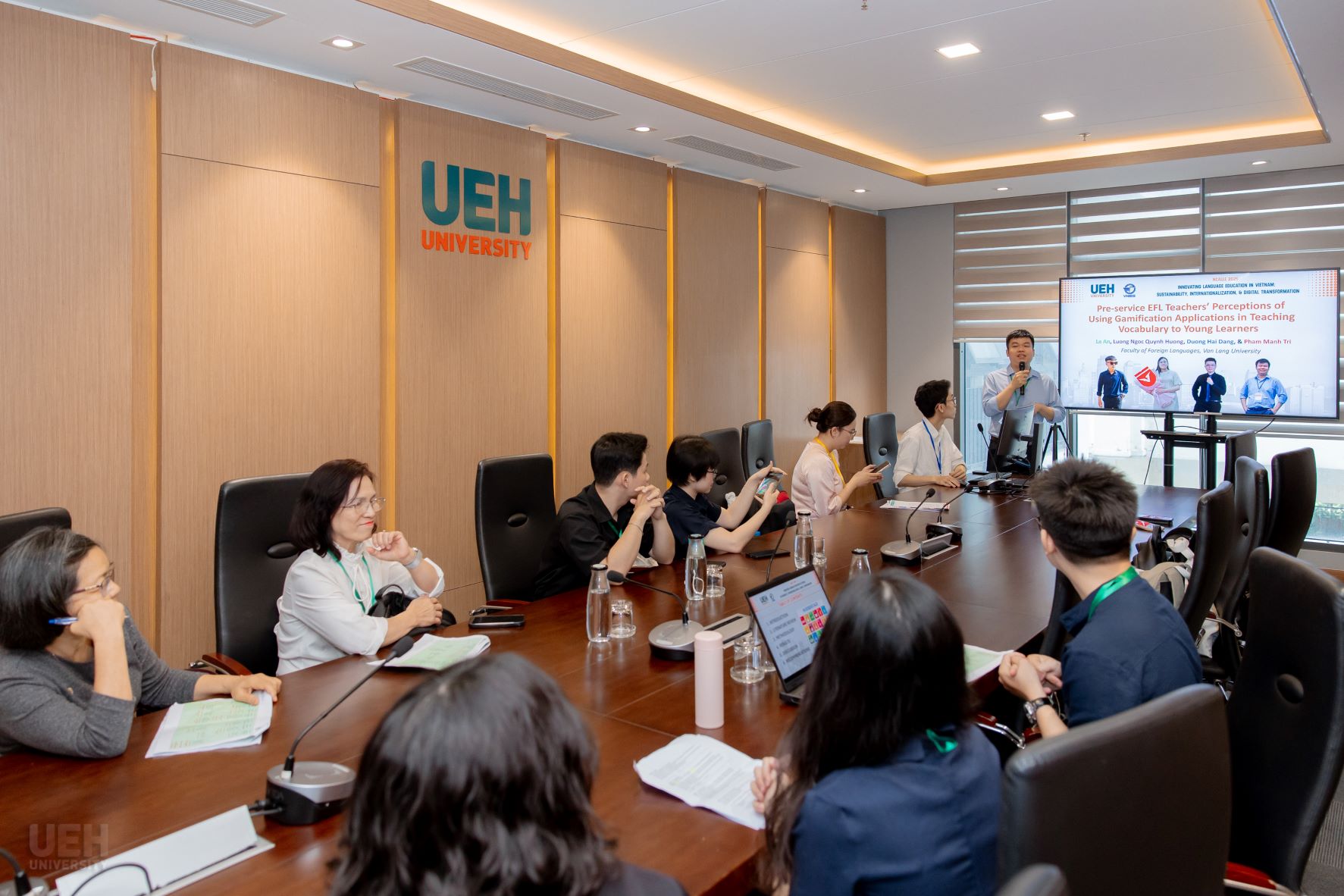
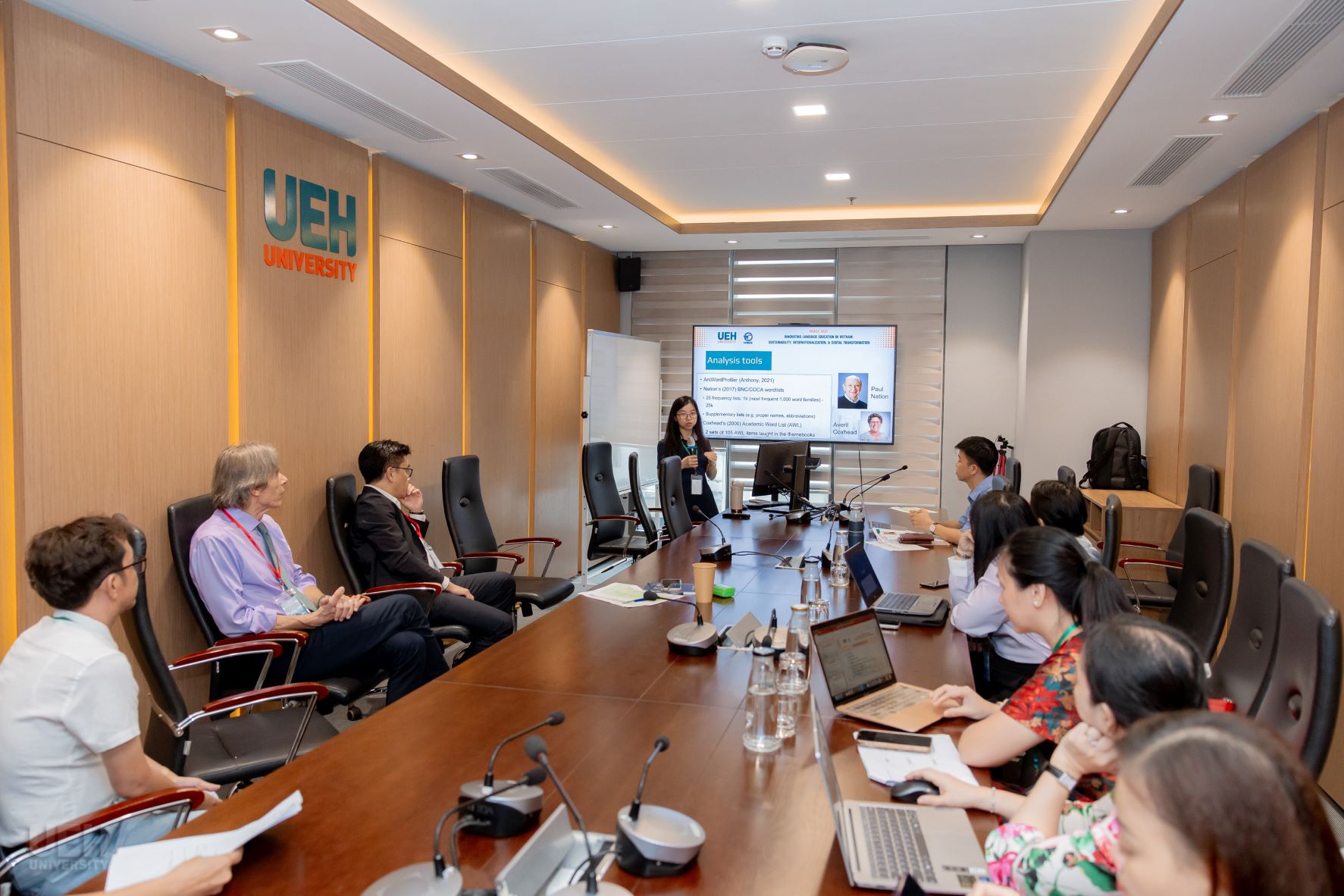
Parallel sessions at the conference
The conference concluded in a spirit of open exchange, deep collaboration, and a shared vision of sustainable innovation. The outcomes and ideas shared at the event are expected to contribute to shaping strategies for the development of language education in Vietnam, while also promoting international integration in training, research, and human resource development in the era of global digital transformation.
